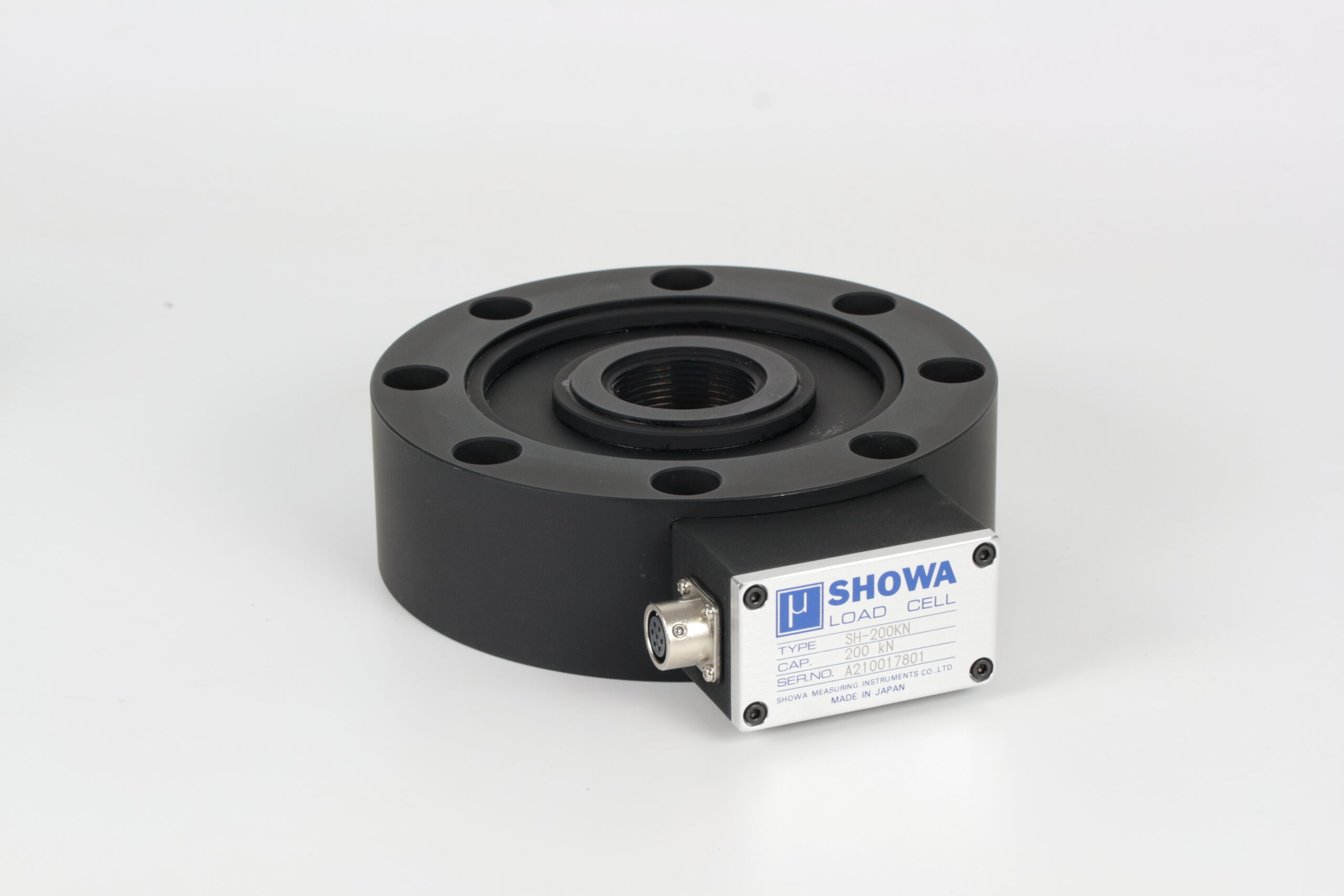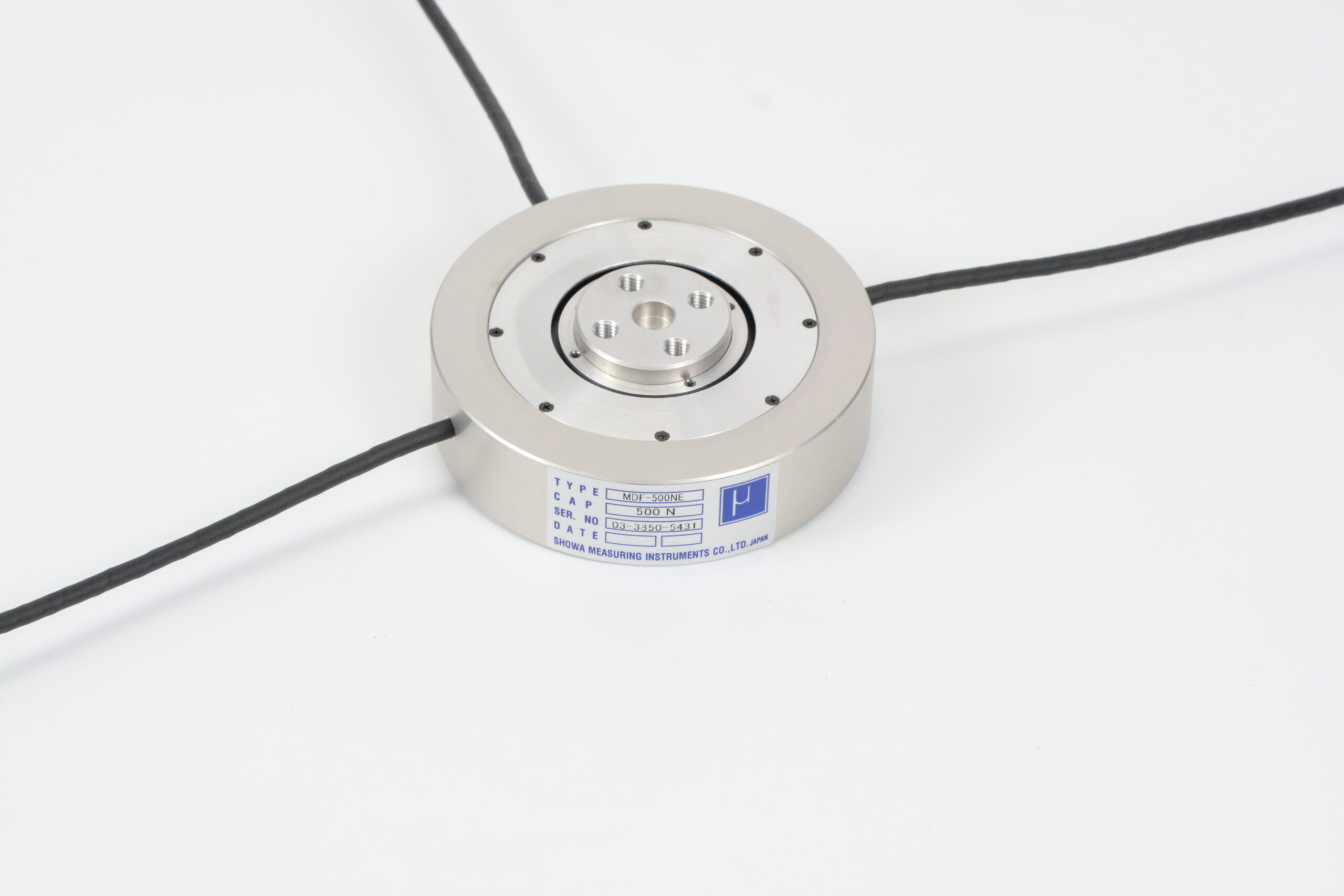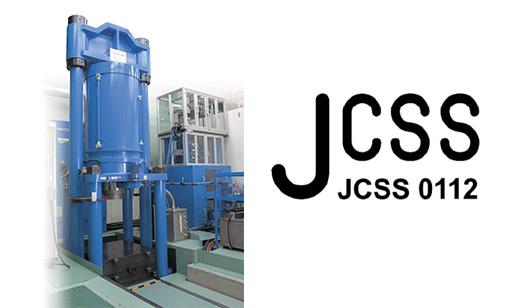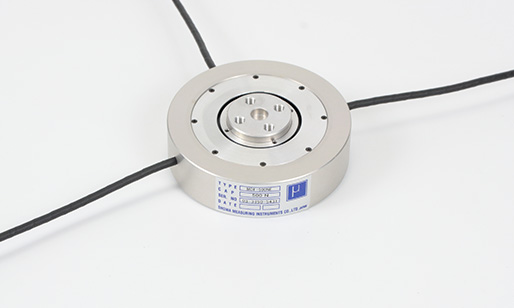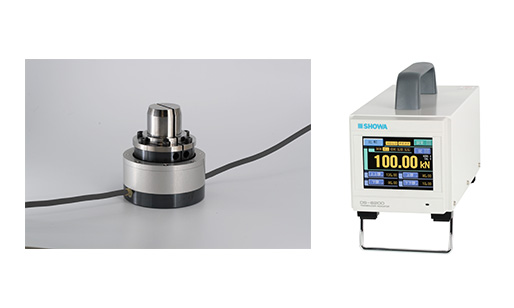DBJ
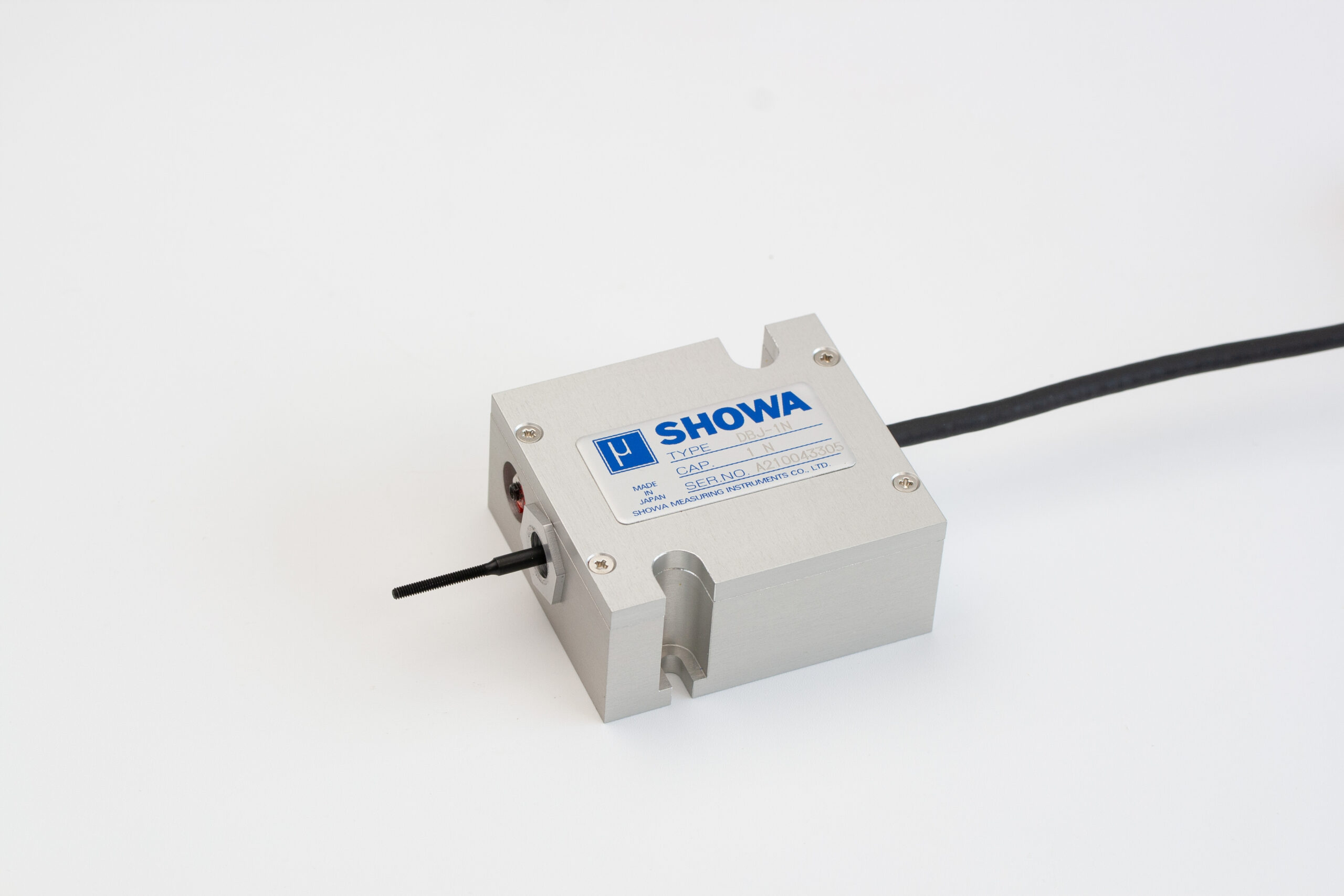
-
Features
- Covering the minute wide capacity range 1 to 20N.
- Using special designed 350Ω strain gages for the detection of load, thereby, an excellent linearity or thermal coefficient of 0.025%RO can be attained.
- Attractive load charactetistics in maximum overload (200%RO) and in side load (40%).
- Guaranteeing the load leaving off coefficient up to 5 cm maximum and within 0.005%/cm.
- A specially designed mounting table (Optionally supplied) can be utilized as a measuring unit.
Appearance Dimensions
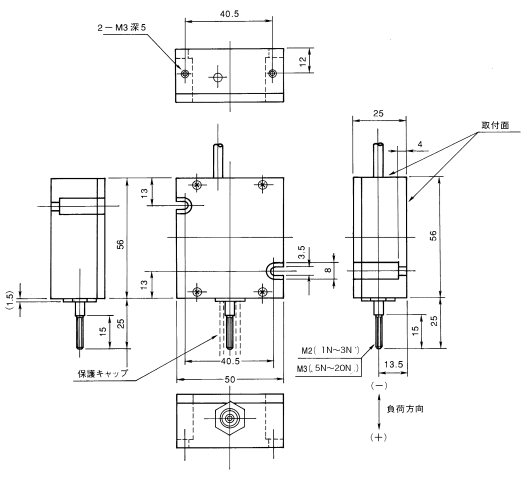
Model and Capacity / Dimension / etc. (unit : mm)
| Model | Capacity | Deflection | Natural frequency | Weight |
|---|---|---|---|---|
| DBJ-1N | 1 N | 0.42mm | 82 Hz | 125 g |
| DBJ-2N | 2 N | 0.35mm | 130 Hz | 125 g |
| DBJ-5N | 5 N | 0.24mm | 180 Hz | 125 g |
| DBJ-10N | 10 N | 0.20mm | 360 Hz | 125 g |
| DBJ-20N | 20 N | 0.16mm | 570 Hz | 125 g |
*Mass does not include cables.
Specifications
| Safe Overload | 200 %R.C. |
|---|---|
| Maximum permissible overload | 500 %R.C. |
| Acceptable overload of stopper | 40 %R.C. |
| Rated Output | 2 mV/V±5% |
| Nonlinearity | 0.025 %R.O. |
| Hysteresis | 0.025 %R.O. |
| Load leaving off coefficient | 0.005 %/cm |
| Excitation Voltage | 7 V (or less) |
| Safe Excitation Voltage | 10 V |
| Input Rsistance | 350 Ω |
| Output Rsistance | 350 Ω |
| Compensated Temp.Range | -10~45 ℃ |
| Safe Temp.Range | -20~60 ℃ |
| Temp.Effect on Zero | 0.004 %R.O./℃ |
| Temp.Effect on Output | 0.003 %/℃ |
| Cable | Φ4mm-4wire shielded cable, length : 2m(tip peeled off) |
- Acceptable overload of stopper: The acceptable overload coefficient of stopper represents the maximum permissible overload value exceeding which the load cell in question can still retain its status as a load cell. In other words, any influences may not be produced in that load cell even in case when internal mechanisms might be damaged within this overload range.
- Maximum Side Load: The maximum side load coefficient represents the permissible load by which a load cell can endure at 90 degree angles with the loading axis of that load cell and it corresponds to 23.5 degrees if expressed by a slant angle against the loading point. Its sensitivity varies in proportion with “cosθ” but its varying accuracy is guaranteed.
- Load Leaving Off Coefficient: The load leaving off coefficient indicates the amount of variations in the output taking place when the load center leaves off from the axial center of the load cell. The leaving off distance of Model DBJ is guaranteed to be 5 cm in the maximum.
Instruction Manual&Download drawings
If you wish to download, please register or log in.
member login
